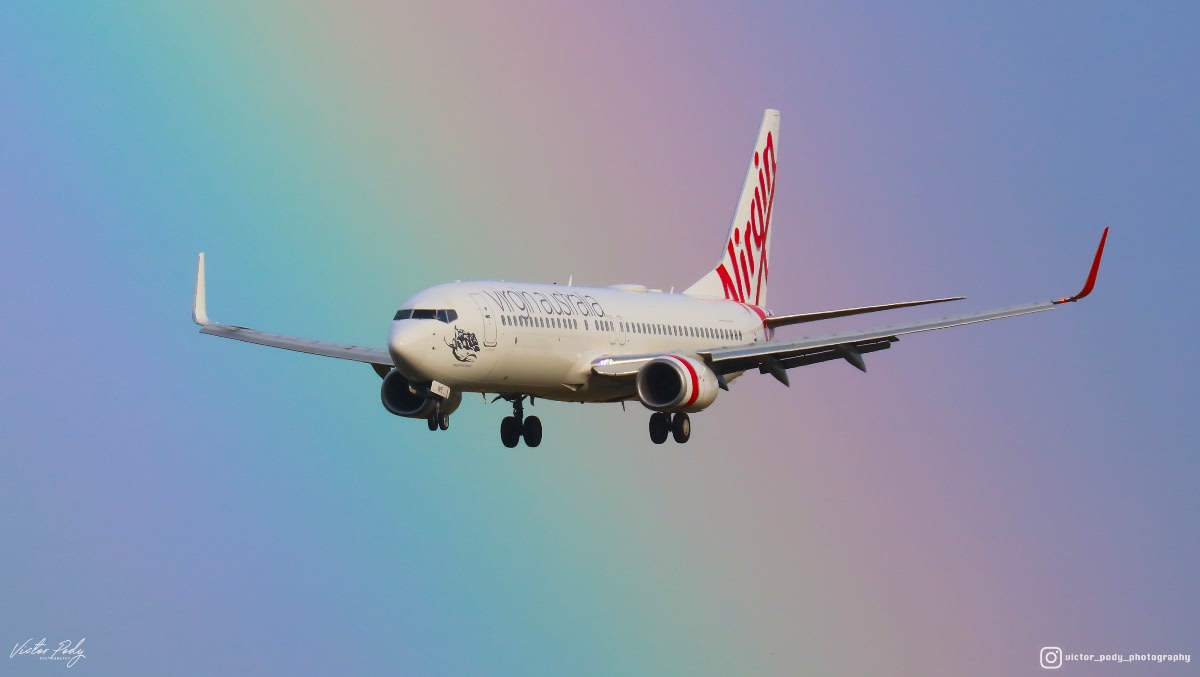
Virgin ground crew will not go on strike after the TWU struck an agreement with the airline for a new pay deal.
The union said the proposal, set to be put to staff imminently, includes creating more full-time positions and a commitment to avoid outsourcing.
The TWU had already gained permission from the Fair Work Commission to take industrial action, but that course of action is now unlikely.
“Virgin will re-establish its job classification structure after it collapsed when ground workers’ pay needed to be bumped up to award minimum rates,” said the union.
“The correction to job classifications means experienced workers who sacrificed the most will receive the highest pay increases between 8-20 per cent in the first year, followed by a universal 6.5 per cent increase across the subsequent two years of the agreement.
“Workplace safety will improve through commitments to introduce an extreme weather policy and roster team numbers to a safe standard, as well as correcting poverty pay that had led to workers juggling second or third jobs.”
The resolution comes despite the carrier’s cabin crew also being on the verge of taking industrial action against the airline.
The TWU is separately negotiating a new enterprise agreement with them and claims the business hasn’t “held up its end of the bargain” after its staff helped the airline recover from administration and COVID-19 to record a $129 million profit for FY23.
In response, Virgin insisted it was committed to reaching an “amicable solution” and said the previous agreement only expired recently.
“Our cabin crew, ground crew, and pilot members have all reported fears of mistakes being made due to their unsustainable working conditions, made worse by high turnover, fatigue-related absenteeism, and juggling second or third jobs,” said the union’s national secretary, Michael Kaine.
“Workers are utterly exhausted, with several cabin crew members reporting near-misses on their drive home from long shifts.
“We need to see a considerable shift in Virgin’s bargaining approach to ensure a fair, sustainable enterprise agreement offer and avoid last resort strikes.”
The TWU first applied for permission for a strike ballot of workers last month and claimed the airline failed in an application to have strike notification times extended from three to seven days.
It also wants an annual $1,000 employee share scheme to run in conjunction with any relisting on the ASX.
The breakdown in relations is a long way short of when Kaine hailed the performance of the new Virgin management on the Australian Aviation podcast in December 2020.
“They’ve stuck to the arrangements they said they would put in place to keep the scope of the company,” said Kaine. “And holding to that means the starting points of a bridge of trust being built between us.”
It followed the pair striking a quick deal that saw employees accept an 18-month to two-year pay freeze in exchange for a guarantee that no jobs would be outsourced.
The deal was a coup for the former Jetstar boss, given her notoriously bad relationship with unions over the years.
Unions at one stage walked out of negotiations when rumours first emerged that former boss Paul Scurrah was to leave to be replaced by Hrdlicka.
















